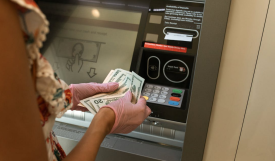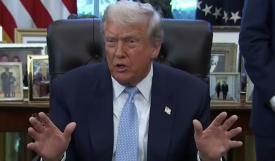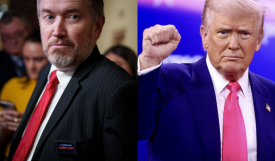Mark Zuckerberg, Silicon Valley Chiefs to Supreme Court: Let Immigrants Stay, 'Current Immigration System Inhibits Productivity of US Companies'
Facebook CEO Mark Zuckerberg and a group of Silicon Valley chiefs have come out in official support of President Obama's executive actions that seek to protect undocumented immigrants.
In a brief submitted to the Supreme Court, the Facebook founder, along with LinkedIn co-founder Reid Hoffman, PayPal co-founder Max Levchin, prominent angel investors and venture capitalists, and representatives of upwards of 60 companies -- all part of the FWD.us immigrant advocacy group -- urged the Supreme Court to uphold Obama's efforts to allow millions of immigrants to stay in the U.S.
Silicon Valley Speaks
The court brief released by FWD.us on Tuesday argues that the immigration system is broken and urged the Supreme Court to allow Obama's executive actions to be implemented for the sake of the U.S. economy.
"Instead of inviting the economic contributions of immigrants, our immigration enforcement policies have often inhibited the productivity of US companies and made it harder for them to compete in the global marketplace," read the FWD.us brief. "America's immigration enforcement policies should ensure that immigrants' ingenuity, skills, and entrepreneurial spirit are contributing to the U.S. economy -- and deferred action policies are a helpful start."
The brief marks a huge contribution to the president's case from some of the top drivers of the U.S. economy, though FWD.us' support for more liberal immigration policies is well known in the technology industry.
DAPA and DACA on the Brink
Obama's executive orders on immigration were challenged in United States v. Texas, one of the most controversial Supreme Court cases of the year. Last year, district courts in Texas, along with 25 other states, halted the implementation of Obama's Deferred Action for Parents of Americans and Lawful Permanent Residents (DAPA) and the expanded Deferred Action for Childhood Arrivals (DACA).
Now at the Supreme Court, the case is heading toward its final ruling when the highest judiciary in America hears the case in mid-April. The Supreme Court's decision will determine whether or not Obama overstepped his presidential power in issuing the executive orders, which, if implemented, could protect as many as 5 million undocumented immigrants from deportation.
Immigrants' Economic Impact
For the technology industry, the economic case for allowing more visas, as well as the continuance of Obama's executive order, received top billing.
"Undocumented individuals constitute over five percent of the U.S. workforce, and in some industries it is estimated that they constitute a much greater share," stated the court briefing. "They make vital contributions to our economy as workers and consumers. Indeed, the United States has long benefited from the entrepreneurship and innovation of immigrants -- including undocumented immigrants."
As Latin Post previously highlighted, in 2015 the Kauffman Index of Startup Activity found that immigrant entrepreneurs, especially Latino immigrants, were a big part of the nation's startup economy. While immigrants accounted for 12.9 percent of the U.S. population in 2014, immigrant entrepreneurs accounted for 28.5 percent of U.S. startups.
Immigrant entrepreneurship is more impactful than ever before, doubling the rate of U.S. startups in 2014 compared to 1996. The government's recent inability to address immigration reform has hampered the economy, FWD.us argued, but it also represents a humanitarian crisis.
In fact, Zuckerberg's group advocated, the two factors are interrelated in the long term.
"Between 2009 and 2013, there were more than 4.3 million children -- most of them U.S. citizens -- living in the same household with at least one undocumented parent who would be eligible [to stay in the U.S. under DAPA]," stated the brief. "These children suffer from instability and stress that hinder academic achievement."
"And even undocumented children who overcome the many obstacles facing themselves and their families, achieve educational excellence in the United States, and are poised to help our businesses succeed in the global economy are often preluded from investing their skills into the U.S. economy," the brief added, projecting that the economic benefits of Obama's executive actions could increase the U.S. GDP by over $200 billion in the next decade.
While the Supreme Court is scheduled to hear arguments in the United States v. Texas case on April 18, the verdict will likely not be rendered and released until June.
Subscribe to Latin Post!
Sign up for our free newsletter for the Latest coverage!
© 2025 Latin Post. All rights reserved. Do not reproduce without permission.















